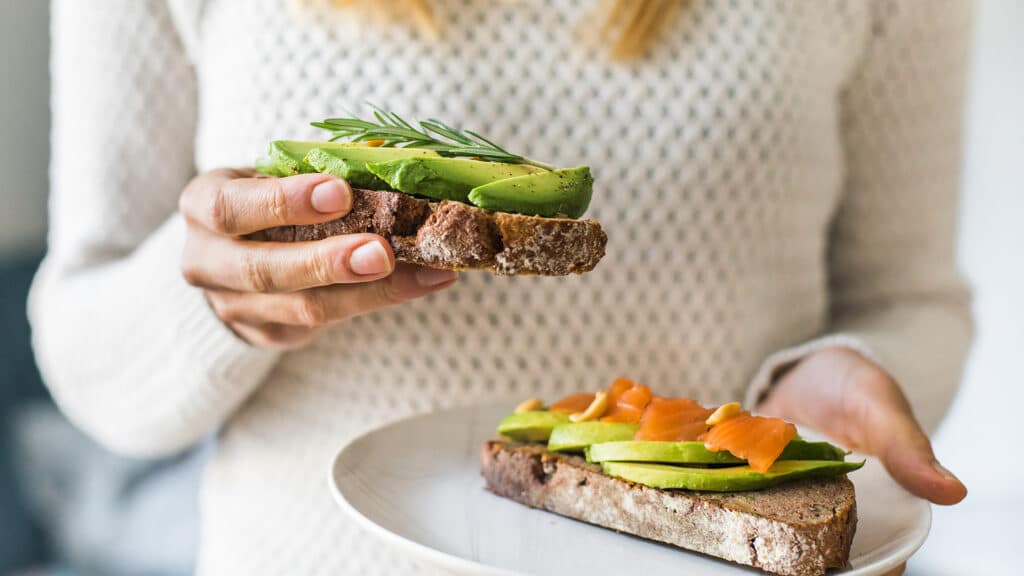Are you trying to lose weight without settling for unhealthy tactics? Striving for sustainable slimming can be intimidating, particularly with all the conflicting advice out there. But this article aims to provide you with accurate and reliable tips for achieving healthy, long-term weight loss success!
You’ll learn about the role that a balanced breakfast plays in maintaining your health and managing your weight. We’ll also explore how incorporating lean proteins and healthy fats into your daily meals can influence blood sugar levels and control appetite.
We’ll delve into the importance of consulting healthcare professionals like registered dietitians in setting personalized fitness goals. They can offer lifestyle advice that goes beyond conventional calorie-restricting diets, helping you steer clear of unrealistic weight loss expectations.
Finally, we’ll discuss why opting for whole foods over processed ones is crucial for sustainable weight loss. By understanding these principles, you will set yourself up for success in losing weight healthily amid the pressures of today’s diet culture.

The Role of A Balanced Breakfast In Weight Management
Breakfast is the most important meal of the day. Not just any breakfast will do if you want to manage your weight like a pro. A balanced breakfast is a key component in building a sustainable weight-loss plan.
The Importance of Breakfast In Diet Planning
A well-balanced breakfast sets the tone for your day. Kick-starting your metabolism with a balanced breakfast can help you burn calories more efficiently. Plus, it keeps your blood sugar in check, so you don’t turn into a hangry monster later in the day.
Eating regular meals, starting with a solid breakfast, also keeps your digestion on track, preventing bloating and constipation.
Choosing Nutritious Ingredients For A Balanced Breakfast
Selecting the appropriate elements is essential for preparing a breakfast that’s both nourishing and fulfilling. Start with whole grains like oats or brown rice for slow-release energy. No more crashing before lunchtime!
- Fruits: Add some fresh berries or bananas for a delicious, sweet kick and a boost of vitamins and minerals.
- Dairy: For strong bones and long-lasting energy, go for low-fat Greek yogurt, which is rich in protein and calcium.
- Nuts and seeds: Sprinkle a handful of nuts or seeds on your cereal for healthy fats and extra fiber, which help boost cognitive function and digestion.
Incorporating these breakfast components into your routine doesn’t have to be a chore. From overnight oats to smoothie bowls, there are quick and easy breakfast recipes to suit everyone’s preferences and morning routines.
A balanced breakfast with whole grains, lean proteins, and a side of fruit can help you conquer those midday munchies and achieve long-term weight loss. Remember, it’s all about making smart choices consistently. Start your day right, and the rest will fall into place more easily.

Consulting Healthcare Professionals For Weight Loss Goals
Embarking on a weight loss journey? Don’t go it alone. Seek the wisdom of healthcare pros to shed pounds and boost your overall well-being. They’ll give you personalized guidance based on your health, habits, and preferences.
Importance of Professional Consultation In Weight Management
Healthcare pros can help you steer clear of unsustainable diets and guide you toward an effective, long-term weight-loss plan. They’ll assess your health, spot potential risks, and suggest interventions just for you. A dietitian will guide you in making smarter food choices, so that you can get the nutrients you need while achieving your weight-loss goals.
Setting Personalized Fitness Goals With Expert Help
Set achievable weight loss goals with the help of pros. A fitness trainer can design a fat-burning, heart-strengthening exercise plan tailored to your individual needs and goals, factoring in your age and athletic ability. These exercise wizards evaluate your strength and endurance before creating a workout schedule.
Other professionals who can help you on your weight-loss journey include:
- Nutritionists: These food gurus analyze your eating patterns and recommend portion sizes and meal timings. They’ll help you make healthier food choices.
- Mental Health Counselors: These emotional support heroes can help you address the root causes of overeating and binge-eating disorders, as well as the psychological toll of struggles with body image. They’ll help you build a healthier relationship with food.
Remember that reducing weight is not just about the figure on the scale; it’s about improving your quality of life by getting more beneficial nutrition and exercising safely. So, consult the experts before making any major changes to your diet or exercise regime in order to get started on the right foot!

Protein’s Impact On Blood Sugar Levels & Appetite Control
Getting enough lean protein in your diet is essential for weight management. Protein keeps you full and keeps your blood sugar in check, preventing pesky cravings between meals. Add some lean proteins to your meals to keep your energy levels up and resist snacking.
How Protein Affects Blood Sugar Stability
Proteins are like traffic cops for your blood sugar. They slow down the absorption of glucose, keeping your energy levels steady and your hunger at bay. Visit Healthline’s website for more information about the functions of protein in the body.
- Maintaining Energy Levels: Protein keeps you going all day long, so you won’t crash and burn or reach for that candy bar.
- Satiety & Hunger Management: Protein fills you up and keeps you satisfied, making it easier to stick to your weight loss goals.
Lean Proteins That Crush Cravings
Want to control your appetite and shed those pounds? Here are some delicious types of lean protein options to add to your menu:
- Fish: Salmon and tuna are lean proteins rich in omega-3 fatty acids, a winning combo for weight loss.
- Eggs: For a protein-packed breakfast, eggs are a delicious and nutritious choice.
- Poultry: Turkey and chicken breasts are lean, mean, protein machines. Say goodbye to fatty red meats.
Visit EatThis.com for more tips on incorporating protein powerhouses into your meals.
If you’re determined to shed pounds and maintain a healthy weight, protein-rich meals should be your go-to. Maintaining balanced blood sugar levels, satiating hunger, and developing muscle mass are just a few of the benefits protein can offer.

Healthy Fats Vs. Processed Sugars: Making Wise Dietary Choices
A key lesson for improved nutrition is this: not all types of fats and sugars are created equal! Let’s find out why healthy fats like avocados and nuts are nutritional superheroes, while processed sugars lurking in packaged foods can sabotage your health goals.
Healthier Alternatives To Processed Sugars
Before indulging in packaged treats, become more aware of what you are consuming by reading the list of ingredients. Processed sugars such as high-fructose corn syrup, sucrose, and glucose can send your blood sugar on a rollercoaster ride. Blood sugar spikes and crashes can leave you feeling tired and hungry for more sugar.
It’s smart to watch your sugar consumption, but there are natural sweeteners like honey and maple syrup that nutrients and antioxidants to the table. Fresh fruits can also satisfy your sweet tooth naturally. Plus, fruits are rich in fiber, which slows down sugar absorption and saves you from blood sugar spikes.
Incorporating Healthy Fats Into Your Diet
Now let’s talk about fat. Some people run away from it like it’s the boogeyman, but not all fats are unhealthy! It’s not just about the quantity, but also the quality of fats you consume.
- Monounsaturated Fats: Avocados, almonds, and olives can lower bad cholesterol and boost good cholesterol, helping you manage your weight.
- Polyunsaturated Fats: Fish, including salmon and mackerel, along with flaxseeds and walnuts, bring the omega-3 fatty acids to the party. These fats are brain boosters, cell growers, and heart supporters.
- Saturated Fats: Moderation is key! Saturated fats are found in animal products, such as meat, eggs, and dairy. Coconut oil also contains saturated fats, but it offers medium-chain triglycerides (MCTs) that can help control your appetite and rev up your metabolism.
Rather than banning certain foods, try making smarter swaps. Watching your intake of processed sugars while adding good fats to your meals can help you make weight loss a sustainable and delicious journey.

Opting For Whole Foods Over Processed Ones For Sustainable Weight Loss
Your journey towards sustainable weight loss will involve a shift in dietary habits. Choosing simple foods like fresh produce and whole grains over highly-processed foods made in a factory is great for you and your waistline.
Differentiating Between Whole Foods & Their Highly Processed Counterparts
Whole foods are foods that haven’t been messed with in a factory. Processed foods are created to satisfy cravings, filled with artificial flavorings and stripped of nutrients in the process.
Incorporating More Natural Food Choices Into Everyday Meals
Switching to more natural food is easier than you think. Here’s how:
- Eat more fresh produce: Fruits and veggies are low in calories and high in essential vitamins, minerals, and fiber. Eat as much of them as you like! .
- Cook at home: Take control of your meals and build your skills as a chef! This is a simple way to avoid food additives and junk. You’ll find that home-cooked meals usually taste better, too!
- Select healthier snacks: Grab nuts, seeds, and fruits instead of chips and cookies. They’re tasty and good for you!
Avoiding processed convenience. Preparing your own food takes planning, but it’s well worth it. By cooking simple meals with fresh ingredients, you’ll satisfy your taste buds, wallet, and waistline!
Conclusion
These sustainable weight loss tips will help you get fit while living better.
Consulting healthcare professionals is a smartest move you can make to start your weight-loss journey right. Set personalized fitness goals appropriate to your individual needs and body. A healthy breakfast will give you the energy to make good choices throughout the day. Lean proteins will help you keep your blood sugar levels stable and your appetite in check. Say no to processed sugars and yes to healthier alternatives. Healthy fats and whole foods will help you avoid nutrient deficiencies and promote overall well-being.
Remember, change takes time. Rather than going cold turkey on an extreme diet, gradually embrace healthy habits. Soon, you’ll find that it’s a joy, rather than a challenge, to eat whole foods and rock a healthy lifestyle.
















